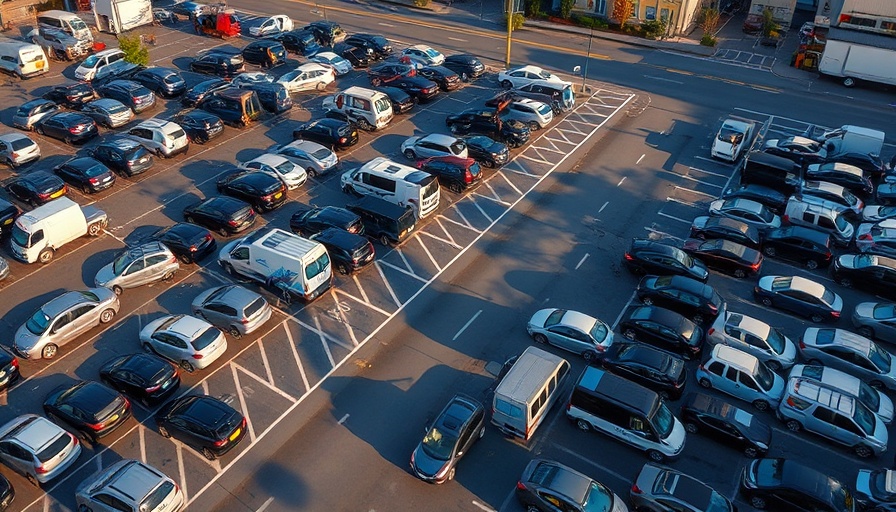
SEPTA's New Parking Fees: What You Need to Know
The Southeastern Pennsylvania Transportation Authority (SEPTA) is set to implement new parking fees aimed at offsetting financial burdens that have accumulated due to the COVID-19 pandemic. Starting Monday, commuters will have to pay $2 per day to park in SEPTA's lots and $4 per day for parking in its garages, even on weekends and holidays. This significant shift marks the end of a free parking period that began during pandemic-related restrictions and was phased back in last September.
In 'SEPTA to charge parking fees on holidays and weekends starting next week', the discussion dives into the new parking fee structure, exploring key insights that sparked deeper analysis on our end.
Understanding the Context: The Doomsday Budget
This decision is part of what SEPTA officials term the "doomsday budget"—a framework necessitated by severe financial challenges stemming from the pandemic. As ridership plummeted due to stay-at-home orders, SEPTA faced unprecedented financial strains, leading to trade-offs that directly affect the commuting public. These parking fees represent not just a price increase; they reflect SEPTA's need to stabilize funding to maintain services vital for thousands of commuters.
The Impact on Pennsylvania Residents
For many Pennsylvania residents, these increased parking costs will alter commuting dynamics. With parking fees now applicable on weekends and holidays, those who frequently use SEPTA for leisure activities may reconsider their travel plans. This raises a pertinent question: how will these changes affect local economies that rely on foot traffic from commuters and visitors? Local businesses should brace for fluctuations in customer volumes as parking becomes less accessible or more costly for the average consumer.
Comparing Alternatives: Public Transit vs. Driving
In light of these new fees, commuters may explore alternative transport options. However, SEPTA's public transit offers a cost-effective solution compared to the combined parking and fuel costs associated with driving. With fare options that accommodate varying commuter patterns—including discounted weekly or monthly passes—SEPTA may still be the cheaper choice for daily travelers, despite the new fees. Evaluating what’s best for the individual is crucial: Is paying for parking worth the convenience of having a vehicle, or does public transport provide the better value?
Long-term Future of SEPTA Parking
Looking ahead, SEPTA must weigh the potential revenue generated by these fees against possible pushback from riders. As many individuals and families adjust their budgeting strategies, the long-term sustainability of this model will come under scrutiny. Could future fare adjustments be left on the table as an avenue to provide riders relief? Staying informed and involved in community discussions about these changes can empower constituents to advocate for options that better serve their needs.
Your Voice Matters
Residents and visitors are encouraged to voice their opinions about the new parking fees. Attending community meetings, reaching out to SEPTA officials, and participating in local forums can help ensure that commuter concerns are heard. Engaging with community leaders and participating in upcoming discussions about public transit services can shape future policies that affect everyone.
As SEPTA’s new parking fees roll into effect, Pennsylvania commuters should be aware of the changes and their ripple effect throughout the local economy. The switch from free to paid parking represents only part of a broader narrative about how public transit systems adapt to new realities in the post-pandemic world. Stay tuned as we continue to cover these evolving discussions.
 Add Row
Add Row  Add
Add 




 Add Row
Add Row  Add
Add 

Write A Comment